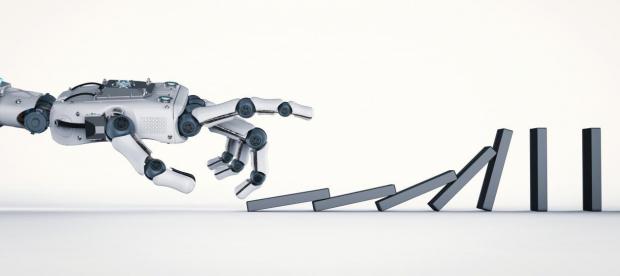
Breaking News
 China Will Close the Semiconductor Gap After EUV Lithography Breakthrough
China Will Close the Semiconductor Gap After EUV Lithography Breakthrough
 The Five Big Lies of Vaccinology
The Five Big Lies of Vaccinology
 Large global study analyzing data from 192 countries has sparked intense debate by suggesting...
Large global study analyzing data from 192 countries has sparked intense debate by suggesting...
Top Tech News
 EngineAI T800: Born to Disrupt! #EngineAI #robotics #newtechnology #newproduct
EngineAI T800: Born to Disrupt! #EngineAI #robotics #newtechnology #newproduct
 This Silicon Anode Breakthrough Could Mark A Turning Point For EV Batteries [Update]
This Silicon Anode Breakthrough Could Mark A Turning Point For EV Batteries [Update]
 Travel gadget promises to dry and iron your clothes – totally hands-free
Travel gadget promises to dry and iron your clothes – totally hands-free
 Perfect Aircrete, Kitchen Ingredients.
Perfect Aircrete, Kitchen Ingredients.
 Futuristic pixel-raising display lets you feel what's onscreen
Futuristic pixel-raising display lets you feel what's onscreen
 Cutting-Edge Facility Generates Pure Water and Hydrogen Fuel from Seawater for Mere Pennies
Cutting-Edge Facility Generates Pure Water and Hydrogen Fuel from Seawater for Mere Pennies
 This tiny dev board is packed with features for ambitious makers
This tiny dev board is packed with features for ambitious makers
 Scientists Discover Gel to Regrow Tooth Enamel
Scientists Discover Gel to Regrow Tooth Enamel
 Vitamin C and Dandelion Root Killing Cancer Cells -- as Former CDC Director Calls for COVID-19...
Vitamin C and Dandelion Root Killing Cancer Cells -- as Former CDC Director Calls for COVID-19...
 Galactic Brain: US firm plans space-based data centers, power grid to challenge China
Galactic Brain: US firm plans space-based data centers, power grid to challenge China
How humans will lose control of artificial intelligence

So they program it to do something simple and non-threatening: make paper clips. They set it in motion and wait for the results — not knowing they've already doomed us all.
Before we get into the details of this galaxy-destroying blunder, it's worth looking at what superintelligent A.I. actually is, and when we might expect it. Firstly, computing power continues to increase while getting cheaper; famed futurist Ray Kurzweil measures it "calculations per second per $1,000," a number that continues to grow. If computing power maps to intelligence — a big "if," some have argued — we've only so far built technology on par with an insect brain. In a few years, maybe, we'll overtake a mouse brain. Around 2025, some predictions go, we might have a computer that's analogous to a human brain: a mind cast in silicon.
After that, things could get weird. Because there's no reason to think artificial intelligence wouldn't surpass human intelligence, and likely very quickly. That superintelligence could arise within days, learning in ways far beyond that of humans. Nick Bostrom, an existential risk philosopher at the University of Oxford, has already declared, "Machine intelligence is the last invention that humanity will ever need to make."

 This is why RAM costs so much
This is why RAM costs so much

